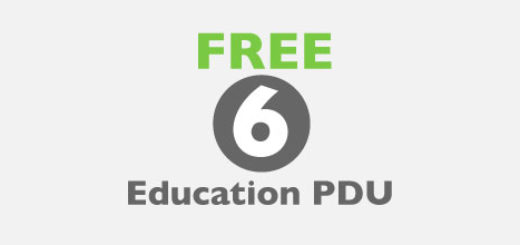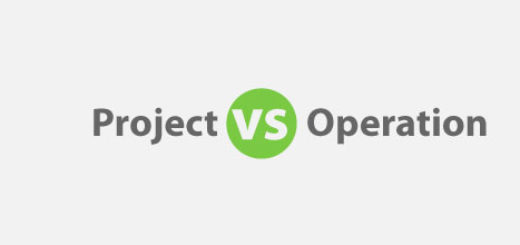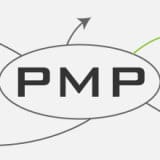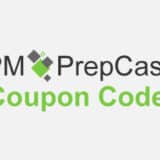An Introduction to PMBOK Guide: Knowledge Areas, Processes and Process Groups
Absolute Beginners' Guide to the PMBOK Guide 6th Edition

Already updated/will be updated for PMP Exam in 2023.
One of the most discussed tables in the Project Management Institute’s (PMI), A Guide to the Project Management Body of Knowledge, (PMBOK® Guide) is the “Project Management Process Groups and Knowledge Areas Mapping” matrix. This table maps the 49 processes of project management (an increase from 47 processes in PMBOK® Guide 5th Edition to 49 processes in PMBOK® Guide 6th Edition) to their corresponding Knowledge Areas, as well as to their corresponding Process Groups.
At first glance, the table seems quite complicated, so let’s break it down and uncover why a solid understanding of the relationships between processes, Process Groups, and Knowledge Areas is important to anyone preparing to take the Project Management Professional (PMP) exam. It’s so important, in fact, that we suggest you memorize this matrix and the relationships it calls out. Memorizing the table will prove to be a valuable asset to you during your PMP Exam.
Further reading: my personal PMP Exam study notes here (already updated/will be updated for new PMP Exam in 2023).
Article Highlights
What is a “Process” of project management?
Let’s start with the building blocks of the matrix – what is a process?
At its most basic level, a process is simply a way of transforming an input into an output using appropriate project management tools and techniques.
Good processes-based on sound principles and proven practices are extremely important to a project’s success. Processes, like a roadmap, keep the project going in the right direction; they can also help minimize confusion and uncertainty among the project manager and the project stakeholders and can help drive progress from start to finish. Processes are logically linked by the outputs from other process(es). Processes may either be performed once, periodically based on needs or continuously throughout the project life cycle.
The PMBOK® Guide 6th edition identifies 49 processes of project management that are instrumental to project success.
What is “Knowledge Areas”?
The overarching piece of our matrix is the Knowledge Areas. Each Knowledge Area is made up of a set of processes, each with inputs, tools and techniques, and outputs. These processes, together, accomplish proven project management functions and drive project success.
Thus, the Knowledge Areas are formed by grouping the 49 processes of project management into specialized and focused areas.
Knowledge Areas also assume specific skills and experience in order to accomplish project goals.
The PMBOK® Guide currently recognizes 10 Knowledge Areas, each of which includes a detailed description of the processes associated with that area. These Knowledge Areas are
- Project Integration Management
- Project Scope Management
- Project Schedule Management (naming changed in PMBOK® Guide 6th Edition; formerly Project Schedule Management)
- Project Cost Management
- Project Quality Management
- Project Resource Management (naming changed in PMBOK® Guide 6th Edition; formerly Project Human Resource Management)
- Project Communications Management
- Project Risk Management
- Project Procurement Management
- Project Stakeholders Management
What is “Process Groups”?
So, where do Process Groups fit in? The 49 processes of project management are also grouped into five categories:
- Initiating
- Planning
- Executing
- Monitoring and Controlling
- Closing.
These process groups reflect the logical integration and interactions between the individual processes, as well as the common purposes they serve.
That is, the Process Groups band together the project management activities that are relevant to each project phase and provide a means for looking at best practices within one Knowledge Area at a time. For example, in the Initiation Process Group, you’ll complete the individual Initiation processes like defining scope, goals, deliverables, assumptions, limitations, etc., that make up the project charter. Within the Initiation Process Group, you would also complete all activities and processes for identifying project stakeholders. Similarly, processes required to track, review, and regulate the progress and performance of the project are all included in the Monitoring and Controlling Process Group. So, processes with a common goal or theme are grouped together into a Process Group.
It’s important to remember that Process Groups are not the same as project phases — most projects are comprised of multiple subprojects or phases, and you’ll likely repeat each of the Process Group activities within each project phase or subproject.
Why do we group processes like this? One way to think about this is that the Knowledge Areas encompass what the Project Manager needs to know, while the Process Groups describe the actions the Project Manager (and team) needs to do. Or, put another way, Knowledge Areas are about knowledge on project management topics, while Process Groups seek to apply that knowledge. They provide a logical sequence of steps within the Knowledge Area.
Every one of the 49 processes can be mapped to one Knowledge Area and one Process Group, identifying the proven project management principle(s) behind the process, and at the same time providing the means to accomplish it. As you study the processes within each Knowledge Area, it’s helpful to remember that the processes have a logical connection across the knowledge areas, so try to focus on that, rather than solely trying to memorize which process goes where.
PMBOK® Guide and PMP
So, why do I need to know this for the Project Management Professional (PMP) Exam? Recognizing the interdependent nature of the development lifecycle is critical to effective project management. As a project manager, you’ll need to be able to identify ways in which the process groups interact with each other through the life of your project. Execution within some of the Knowledge Areas and processes will accomplish some project objectives directly; delivering on other Knowledge Areas provides a method to achieve other objectives.
Because the project management processes, Process Groups, and Knowledge Areas span the entire project lifecycle, questions discussing their relationships appear frequently in the PMP Exam. Remember that the Knowledge Areas focus on what the Project Manager needs to know, while the Process Groups describe the actions the Project Manager (and team) needs to do. Understanding and memorizing the hierarchical and yet interdependent relationships between the Knowledge Areas (strategy), the Process Groups (steps), and the building blocks (49 processes of project management) will help you during the PMP exam.
As a trick, many PMP exam takers would make use of the first 5 minutes of their PMP Exam time to draw this table onto an empty sheet of paper (from their own memory) so that they can use it as a reference in answering their 200 exam questions.
Additional PMP Study Resources
If you find the above PMP study notes useful, you may want to check out the recommended PMP Exam study resources on my website (all are free):
- PMP EVM Formulas Explained in Simple Terms — just enough for PMP Certification Aspirants to answer PMP questions correctly
- 20+ PMP EVM Mock Exam Questions — with detailed explanations and tips on answering PMP Maths questions
- PMP Glossary Flashcard
- 47+ Commonly Confused PMP Terms
- Best FREE PMP Sample Exam Questions
Wish you PMP Exam success!
~ Written by Cornelius Fichtner, PMP, CSM – Instructor and producer of PM PrepCast™ and Edward Chung, PMP
Most Popular PMP Certification Exam Articles
- My Exam Prep Tips and Free Resources (I got 4P and 1 MP)
- How to Get 35 Contact Hours Fast and Easy?
- Detailed Comparision of online PMP Courses
- Over 1000+ FREE Quality Mock Exam / Practice Questions
- A FREE Guide to Formulas and Calculation (with explanation and sample questions)
- 47 Commonly Confused Terms with detailed explanation









 Hi, my name is Edward Chung, PMP, PMI-ACP®, ITIL® Foundation. Like most of us, I am a working professional pursuing career advancements through Certifications. As I am having a full-time job and a family with 3 kids, I need to pursue professional certifications in the most effective way (i.e. with the least amount of time). I share my exam tips here in the hope of helping fellow Certification aspirants!
Hi, my name is Edward Chung, PMP, PMI-ACP®, ITIL® Foundation. Like most of us, I am a working professional pursuing career advancements through Certifications. As I am having a full-time job and a family with 3 kids, I need to pursue professional certifications in the most effective way (i.e. with the least amount of time). I share my exam tips here in the hope of helping fellow Certification aspirants!






Hi Edward,
Now the 7th edition of PMBOK has been released, what are the changes for the process, Knowledge are and process groups?
Thanks
bryce
There is a huge change to the emphasis of the PMBOK 7th in this area. But as the current PMP Exam is still based on PMBOK 6th edition, you can still find the information useful. I have separately written a post on the changes in PMBOK 7th which you can refer to if you need. Wish you PMP success!
Hi Edward,
All the resources available here are related to PMBOK 6th edition, now the latest edition is 10th and I am planning to appear in exam next year in February, I was wondering if I can still purchase “The PM PrepCast Elite PLUS (For PMBOK Guide Sixth Edition)” and prepare for exam that I plan to challenge next year in February. Should I purchase PMBOK Guide Sixth Edition as training is related to this addition
Regards
Hi Muhammad,
The latest edition of the PMBOK Guide is the 6th edition. Some PMP exam prep books may have 10th or later version, however, this is not related to the PMBOK Guide. The PMP Exam will change in Jan 2021 and it is therefore not recommended to buy the PrepCast Elite PLUS for the moment. The PMP Exam Simulator is fine as you will get a free upgrade in Jan 2021 for the latest PMP Exam.
You may refer the PMI website to learn more about the PMP Exam and the PMBOK Guide.
Thanks!
Regards,
Edward
Hi Edward,
Thankyou for writing up this tutorial and sharing your knowledge with us. I failed the exam once a month ago and have it rescheduled for February. I am currently reading Andy Crowe’s PMP guide and will follow that up with Prepcast exam simulator.
I was just reading some of the Reddit posts to get some encouragement when I came across your post. I am not sure if you still check this blog. But I was wondering if it is possible for you to email me the study guide as a pdf. I try to be on the computer when I am studying the book or other notes because I get distracted.
So I would greatly appreciate it if you can send me the pdf.
I would be more than willing to pay for the pdf.
I will be looking forward to hearing from you soon.
Thanks in advance,
Best Regards,
Moe
Hi Moe,
Sorry to hear to fail the first try. But you are much closer to exam success now than ever! Wish you PMP success!
Hi Edward
I am happy to say that I passed the PMP exam, actually second time around, with 2 x AT, 3 x T
Your notes were very helpful, although I do admit I also used the Rita Mulcahy study guide as well which I found very useful.
If there is any tips I can give to all PMP aspirants out there is focus on getting the PM processes (especially for planning) right in your mind.
Study hard, stay positive and believe in yourself!
Maurice
Glad you tell me this! Congratulations!
Hi Edward, Today I have cleared my PMP with 4 Above Target and 1 Target.I must say your notes are of great help for quick revision , as it cover all important topics for PMBOK 6.
Congratulations! I am so glad that you find my sharing useful!
Dear Edward, could you please share me the video reocrding of PMP study material? I want attend the exam after 30 days.
Oh, sorry, as the PM PrepCast which I used to prepare for my PMP Exam has license restrictions, I am not allowed to share it with others. You may search youtube for some PMP study videos (but as I did not make use of these, I could not recommend any).
Wish you PMP success!
Hi Edward,
Thank you for the notes! You rock! They are very useful! I just passed my PMP exam and used your notes to revise my knowledge. I really appreciate it!
Congratulations! So glad that you tell me about this.
Hi Edward
Thanks for the notes. Is there a way to download them as PDF ?
Hi Firoz,
You can actually print the study notes as PDFs.
Wish you PMP success!
Thank you for providing the study notes and the 47 terms. It really helped me in passing the PMP exam.
Hi Justin,
Congratulations! Glad to learn that you have passed the PMP exam! Now, it is time to earn free PDUs:
https://edward-designer.com/web/free-pdu-technical-leadership-strategic-pdu-for-pmp-and-pmi-acp/
Edward, I will be taking my PMP exam in March, can I still use this Study Notes? As I noticed it is for PMBOK 6th Edition as my exam is still based on the 5th Edition and I’m using Rita’s 5th Edition exam prep. Also, what is your recommendation for me to go through from now till early March prior to the exam? Thanks.
Sure, my study notes are valid for both the current 5th edition as well as the 6th edition (the differences between them will also be pointed out in the study notes).
Wish you PMP success!
Please note there is a typo in the quotes at https://edward-designer.com/web/introduction-to-pmbok-guide-knowledge-areas-processes-process-groups. appropraite should be appropriate. I hope it’s OK to give you the feedback here.
Sure, please let me know my typos (I am sure there are lots of them) and I will correct them in no time. Thanks!
Hi Edward,
I just passed the PMP exam yesterday (first try) and I wanted to thank you for all of your helpful content on this website. I received “Above Target” in 4/5 domains with an “Above Target” rating overall. I used Rita’s Exam Prep book (for PMBOK 5th Ed.) as my main text and reviewed your notes, mock exam links, and commonly confused terms to solidify my understanding on some of the concepts. I found the exam very situational in nature and didn’t use many of the formulas. Thanks very much again!
Great Keegan! Congratulations!
Hi Ed , Could you please share mind map link to my email
Hi Edward, thank you for your notes and posts concerning PMP exam prep. I found your site fairly late in my study/prep process. Nonetheless, your notes were great for review and helped me identify and fill a few gaps before taking the exam, which I recently passed.
I’ll be pointing my friends/colleagues who are studying for the exam your way!
Thank you,
Jeff
Congratulations!
Hi Edward. I wanna say really thank you because I’ve just passed my PMP exam using your great website as a very helpful study book. thank you!
Hi Lenz,
Congratulations on passing the PMP Exam! I am sure your experience will be helpful to fellow PMP Aspirants! Would you so kind to share your lessons learned with us? Please email me at [email protected] and I will have it posted asap.
Thanks in advance!
Sorry Ali,
The ads are here to support the operating costs of the website (e.g. hosting, editing, etc.). I hate ads too but the website cannot survive without them. Hope you will understand.
Wish you PMP success!
Edward,
Can you just email me or point me to link where I can download your study notes w/o all this advertisement. These ads are a lot of distraction from reading or printing relevant stuff from your website. Thanks
Hi Edward,
Could you please share the mind maps and study notes link. Thanks
Hi Edward,
your notes are really great.
I am wondering if you have the notes in MS office format such as word or PDF
Thanks
Yasser
Yes, you can download them at PDF using the link “New function! Download this post as PDF” or you can simply copy and paste the contents of each page. Thanks!
Thank you very much for sharing your info. Very helpful. Could you please send me a copy of the mind maps.
Thanks.
Hi Edward,
Can you tell if a calculator is supplied for you when you take the exam? Or must all calculations be done manually?
Thanks!
For the computer-based tests (CBT), you will mostly get an onscreen calculator. For paper-based tests (PBT), you will be provided with a calculator. There is no need to do calculations manually. Thanks!
Edward,
Your notes was so helpful in passing the exams
Bless You
Hi Edward,
I am not able to find “My PMP Study Notes – available for FREE”. I have “Liked” and shared the link as well. Not sure.
You can browse the links below with the heading “Other articles in the series PMP Exam Preparation”, all my PMP study notes are there. Wish you PMP success!
Hi,
Can you offer more explanation of the 35 Contact hours?
I am interested in obtaining PMI certification, I have some project management experience, but don’t understand the 35 Contact hours and how to obtain them properly for the PMI
Thank you!!
35 Contact Hours of project management education is a requirement by PMI in order to qualify for the PMP Exam. You can get the 35 Contact Hours through some qualified education providers. More information on this can be found at:
https://edward-designer.com/web/decompose-pmp-35-contact-hours/
I do appreciate your study notes. I wrote my test today after reading your study note only. It helped me a lot with all the terminologies that the exam has. I do have a good experience with project management and the only PMBOK that I read was in 2005.
Your study notes were enough for me to write and pass PMP test.
Thanks a lot
Hi Edward Chung, Please send me link to PMP 5th edition and Mind Map. I am starting to study for PMP exam, thanks.
Hi Rizwan,
The PMP mind map can be downloaded here:
https://edward-designer.com/web/pmp-mind-map/
You can also download a copy of the PMBOK Guide from pmi.org website as a member for FREE.
Wish you PMP success!